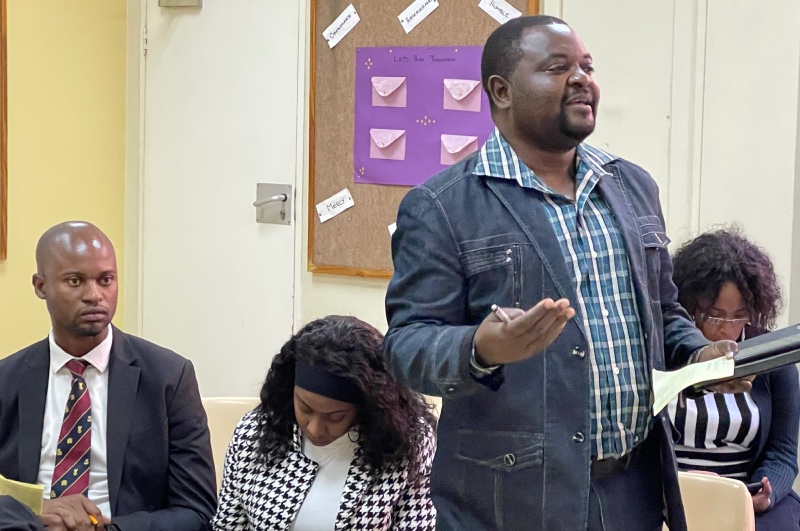



The date 30 June 2023, has understandably, for many undesirable reasons left many Zimbabwean Exemption Permit (ZEP) Holders in South Africa in a state of vexation.
The South African government through its Department of Home Affairs (DHA) has decided to terminate or discontinue the issuing of the ZEPs. A Cabinet decision of 24 November 2021 to no longer renew the permits, was effected on 31 December 2021. The ZEP holders were however, given a grace period of twelve months which was subsequently extended to 30 June 2023.
During this period the innumerable ZEP holders who are employed in South Africa were to apply for the mainstream General Work Permit (GWP). However, the exceedingly stringent Department of Labour requirements for a work permit would regrettably exclude almost all the ZEP holders. A possibility of applying for a waiver is nonetheless in place. Through this waiver employers and individuals can - in principle - be granted exemption from some of these rigorous requirements to allow ZEP holders to apply for a work permit to continue their stay and work in South Africa.
Although many of the 180 000 ZEP holders who have applied for these waivers are yet to hear from the authorities, many more, as the June 30 deadline approaches, are still understandably undicided about the best way forward for them and their families. Their incertitude is further heightened by the circulating misinformation from unreliable sources and their inability to have access to credible information including legal advice and online information, both of which would need some finacial resources.
This situation has triggered a condition of anxiety, confusion and panic among many of the ZEP holders. To help alleviate the challenges posed by their condition, including misinformation, the Migration Commission of the Society of Jesus (JESUITS) in Southern Africa, in collaboration with several other stakeholders, organised the ZEP Dialogue and Information Sharing Meetings in Cape Town and Johannesburg. The Scalabrini Centre in Cape Town, the Catholic Parliamentary Liaison Office, the Zimbabwean Chaplaincies, other Churches, the Helen Suzman Foundation (HSF), the African Diaspora Workers Network (ADWN), the Crisis in Zimbabwe Coalition, the ZEP National Co-ordination Committee (ZNCC) and Zimbabwe Exile Forum (ZEF) were among those who participated in these dialogues. The International Organisation for Migration (IOM) and the United Nations Children's Fund (UNICEF) were also in attendance while the Zimbabwean Embassy was represented by their Consular Generals and staff based in Cape Town, Johannesburg and Pretoria.
The two meetings that ran contemporaneously on Saturday 20 May, were hosted by the two Jesuit run parishes of St Michael’s in Cape Town and Holy Trinity in Johannesburg. Although the meetings were meant to create a platform for dialogue and information, they also highlighted many other challenges and root causes of the anxiety, confusion and panic among many ZEP holders. Fears of being denied the General Work Permit were accomponied by concerns about the cumbersome application processes that already have a huge backlog. This situation will potentially lead to many being undocumented and consequently being denied access to essential services like education for their children, medical attention, banking and financial services, including losing their Unemployment Insurance Fund (UIF) to which many have been contributing.
Although the Zimbabwean Consular Generals who attended the meetings reassured the ZEP holders that they were welcomed to come back home and their government was ready to assist them with repatriation and reintegration, many ZEP holders raised concerns about the conditions that forced them to leave their country which are still not changed. In fact, those conditions have allegerdly worsened. Having picked up the pieces in South Africa and spent years in persuit of a dignified life for themselves and their families, both here in South Africa and in Zimbabwe, many ZEP holders do not think that going back to Zimbabwe is an option, especially for their children’s future.
Notwithstanding the achievements of these dialogue and information sharing meetings, there were however, many other questions and concerns that were raised and left unswered, especially those that are pertaining to challenges related to the DHA. Participants of both meetings in Cape Town and Johannesburg concluded that there was a need for another round of follow-up dialogue and information sharing meetings. We will endeavour to have the DHA in the follow-up meetings and hopefully have clarity on the many unanswered questions. As the termination date of the ZEP is almost upon us, one awaits with bated breath and anxiety while many ZEP holders remain between a rock and a hard place.
Related Articles
Select Payment Method
Pay by bank transfer
If you wish to make a donation by direct bank transfer please contact Fr Paul Hamill SJ treasurer@jesuits.africa. Fr Paul will get in touch with you about the best method of transfer for you and share account details with you. Donations can be one-off gifts or of any frequency; for example, you might wish to become a regular monthly donor of small amounts; that sort of reliable income can allow for very welcome forward planning in the development of the Society’s works in Africa and Madagascar.
Often it is easier to send a donation to an office within your own country and Fr Paul can advise on how that might be done. In some countries this kind of giving can also be recognised for tax relief and the necessary receipts will be issued.

